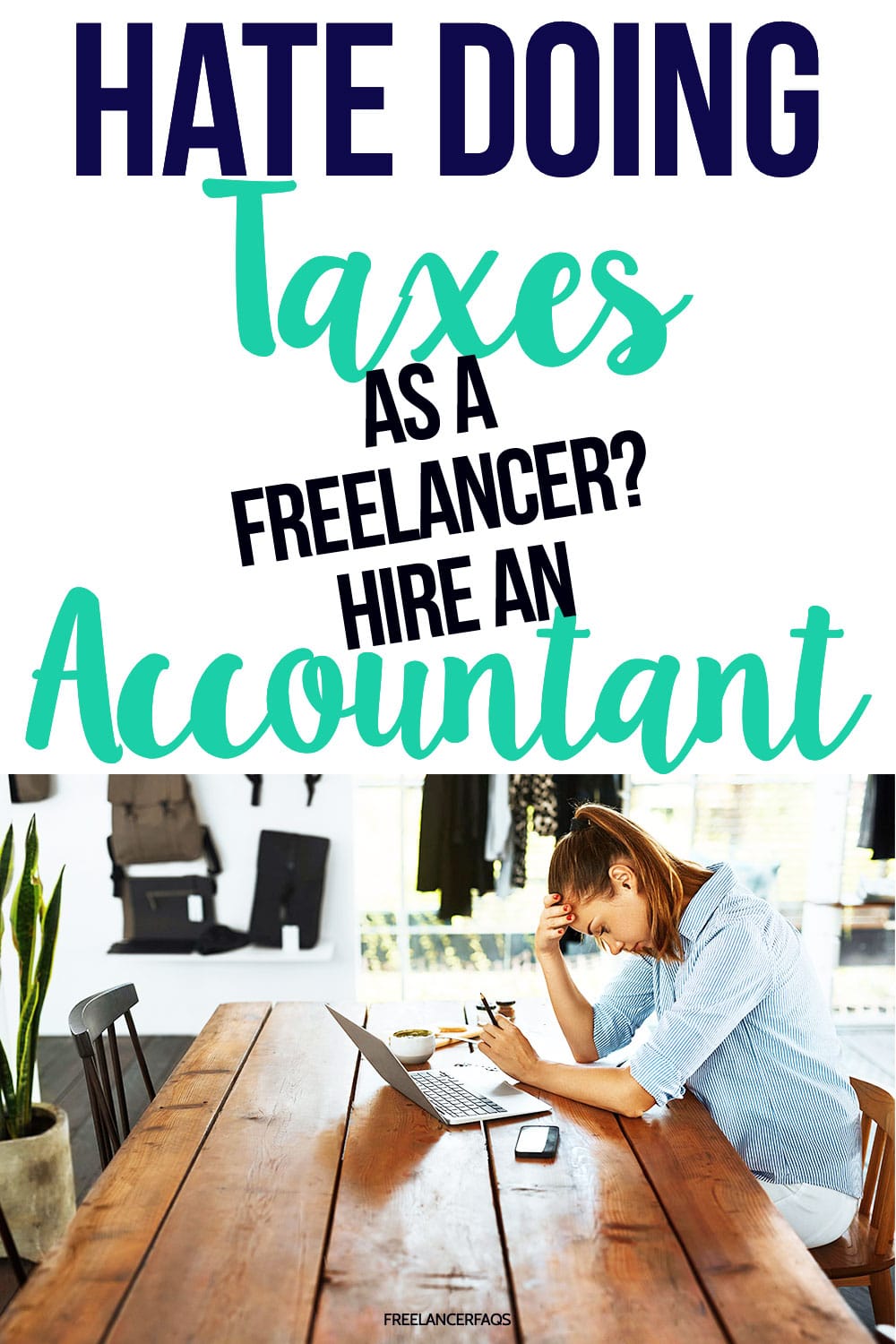I’m not a numbers person. So the first time I had to complete my tax return as a freelancer, I was stumped.
It was a lot more complicated than when I was a salaried employee.

The first time I had to complete my tax return as a freelancer, I was stumped. It was a lot more complicated than when I was a salaried employee.
I also learned that I had to submit tax returns THREE times a year.
In my home country, South Africa, self-employed people have to submit provisional tax returns twice a year in August and February (this is an estimate of what you anticipate earning during the tax year), and a personal income tax return in July (the final figures).
American freelancers submit quarterly returns while UK freelancers only submit a return once a year.
In addition to freelance writing, I run a pet sitting business and one of my clients is an accountant. After hours of frustration trying to figure out the provisional tax form, I called her and hired her to do my taxes.
It was one of the best decisions I made in my freelance career.
She included deductions that I didn’t realize were deductible. This reduced my taxable income to below the threshold, which meant I didn’t owe tax.
No matter where in the world you live, tax is something every self-employed individual has to deal with. If you hate doing taxes, hire an accountant. It will make your life easier.
Why Every Freelancer Needs an Accountant
Freelancers can easily keep track of their finances with the right tools.
Therefore, the main reason freelancers hire an accountant is to do their taxes. Here’s why hiring an accountant is an asset.
- Saves Time. You may take hours, even days, to try to figure out how to correctly file a tax return while an accountant can do it in an hour or two. Would you rather spend hours trying to file a tax return or complete a paid writing assignment?
- If you file a tax return incorrectly, you may end up paying a higher tax bill. Accountants know exactly what expenses can be deducted and how to leverage this to lower your tax bill. You may even get a refund.
- Financial advice. An accountant can help you become better organized with your overall business finances, especially if you run more than one freelance business. Staying on top of the finances of multiple businesses is time-consuming. In this case, it is best to let your accountant handle it so that your time is free to run your businesses.
At What Stage of My Freelance Business Should I Hire an Accountant?
Paying an accountant may not be viable if you’re just starting out and your income is modest.
As your business grows, start budgeting for an accountant. Fees are not as high as you think. For an accountant, filing a tax return for a freelancer is a quick task compared to more complex businesses, so the rate is lower.
Accountant fees are also tax-deductible. You may be reluctant to spend money paying an accountant but doing so may result in a lower tax bill or a refund.

Tax Tips and Tools For Freelancers
As a freelancer, you need to keep a record of your income and expenses. Your accountant needs these figures to do your taxes. It helps to have an organised system in place. That way you’re more prepared for tax season rather than scrambling at the last minute.
Here’s how to hack tax season:
1. Implement a System
If you’re still a little “old school”, there’s no shame in using a spreadsheet. This does, however, require manually inputting your income and expenses.
Going digital is more efficient. Software like TurboTax makes filing easy and integrates with other apps like QuickBooks and Mint.
2. Keep Track of Your Finances and Receipts All Through the Year
When it comes to tax season, waiting until the eleventh hour to gather receipts and backtrack on expenses is stressful. Plus, you risk forgetting certain deductible expenses. If you’ve diligently kept records throughout the year, pulling the relevant numbers is easy when tax season rolls around.
When it comes to receipts, toss out the shoebox system and use a tool like Receiptmate that captures receipts and integrates with Evernote.
3. Know What Deductions are Allowed
Many freelancers aren’t aware of all the deductibles allowed but accountants are. I was surprised to learn I could write off my bank charges and the interest from my car loan.
Because most freelancers work from home, you can also apportion part of your grocery and electric bills towards office expenses.
4. Meet with Your Accountant During the Year
Many freelancers admit to dashing to the tax finish line with minutes to spare. Accountants recommend that you don’t wait until the last minute but rather meet with them halfway through the year to assess your expenses. Discussing this earlier in the year means they can advise on ways you can reduce your tax burden.
They may suggest increasing your retirement savings or taking a training course to improve your skills which will bump up your deductibles.
For more tax-saving tips and tricks, here’s a list that includes tax-saving hacks, tips on deductibles, accounting software for small businesses, and even how going “green” can result in a tax break.



2 Comments